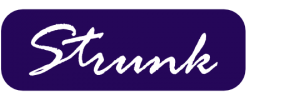The risks of working with vendors that have been sanctioned by the Office of Financial Assets Control (OFAC)
Do you understand the risks of working with vendors who have been sanctioned by the Office of Financial Assets Control (OFAC)? How does this affect the way you manage your vendors?
The Treasury Department’s Office of Foreign Assets Control is known as OFAC. OFAC is in charge of managing economic and trade sanctions as part of the U.S. government’s effort to implement anti-money laundering/counter-terrorism funding laws. These sanctions are aimed at nations, people, or organizations who have participated in dishonorable behavior. In other words, they maintain a list of people and organizations that you should avoid doing business with. Because OFAC imposes trade and economic sanctions on foreign people and organizations that employ cyberattacks to endanger American foreign policy, national security, or financial stability, it has a strong following among security and risk management experts.
It is important to track your vendor’s OFAC report because it is yet another tool in the arsenal of . Here are a few pointers will help you get started:
- Make sure to always verify key fundamental aspects to make sure you’re doing business with a legitimate vendor.
- Perform an OFAC check on any new vendor you start a relationship with.
- Include this check in your initial due diligence procedure and ongoing reevaluations.
- Examine contracts to make sure that the necessary clauses are present.
Not only is it a good idea, but you should start doing an OFAC check on your vendors. For more information on Strunk’s Vendor Manager solution, contact us at info@strunkaccess.com



